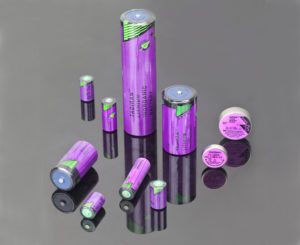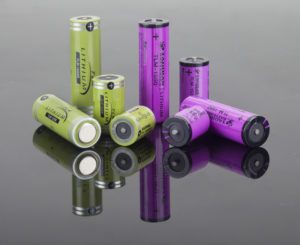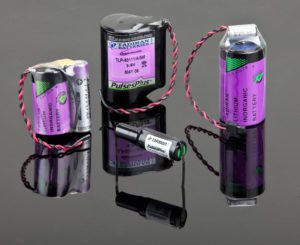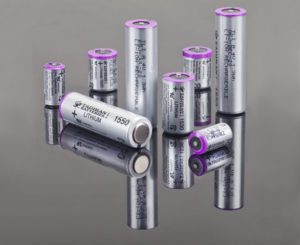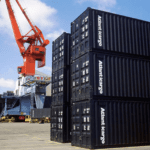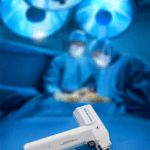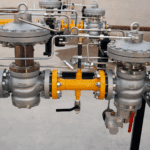Industrial Battery Products Throughout The Years
With the development of modern technologies, industrial battery products have developed as well. Both batteries and products evolved to serve different needs, from the aerospace industry to medicine. Instead of having low voltage and massive construction, you can now fit an industrial battery into a pacemaker. That’s how far we’ve come.
Let’s go from the beginning and check how industrial battery companies advanced their products and which steps had to be taken for the significant change – higher voltage and lower volume. This retrospective will definitely help you understand the importance of industrial battery technology and its future.
Industrial Battery Products – How It All Began
The first industrial battery factories were producing wet type nickel-cadmium batteries since the 1940s in the US. This battery type has a terminal voltage during discharge of 1.2 volts with the maximum capacity of 1.3Ah, which was an achievement for the age, but quite not enough for 21st century needs. Compared to other rechargeable batteries, the Ni-Cd type has a solid duration and good performance at low temperatures, making this specific battery type useful for many years for different industrial battery products.
The most significant advantage over others was the ability to deliver maximum voltage at high discharge rates (one hour or less). They can vary in size and thus the rate. So we have a typical AA battery with a discharge rate of 1.8 amperes and a D-size battery with a discharge rate of approximately 3.5 amperes. They also differ in charge rate, depending on the way cells were manufactured. It’s measured as a percentage of an amp per hour, where the cell still needs to receive more energy than it’ll be spent in the discharge, so it’ll be able to use its total capacity.
These batteries were used in different industrial battery products, such as portable powered tools, flashlights, emergency lighting, and photography equipment. Due to the harmful impact on the environment, the European Union limited its usage with cadmium being extremely toxic even when disposed of properly. Nowadays, Ni-Cd batteries can be used only as backup batteries for medical equipment.
The Transition Of Industrial Battery Products To Lithium Batteries
Lithium thionyl chloride or Li-SOCL2 is the new-gen battery type mainly designed for industrial usage. While it differs from all other types by being non-rechargeable, it offers more advantages than the above-discussed types.
First of all, the expected life span is 10-20 years, which is more than enough for any product. The voltage is extremely high, going to 3.6v, while it’s operable in both low and high temperatures. Nowadays, it’s implemented in vast industries, including aerospace, vehicles, medical equipment, and more. It’s made in all sizes and shapes, but it still keeps all the same characteristics, unlike was the case with Ni-Cd type.
Currently, one of the biggest industrial battery manufacturers following all the new standards related to lithium batteries is Tadiran Batteries from Israel. They have adopted a new approach in producing SOCl2 batteries, while their Li-SOCL2 comes with all the necessary equipment for extended usage.
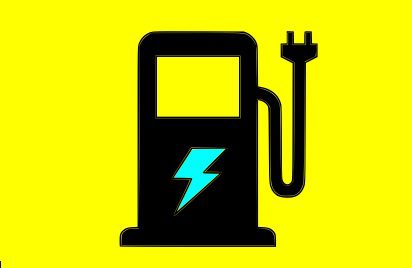
Lithium Thionyl Chloride In Industrial Battery Products
Lithium thionyl chloride or Li-SOCL2 is the new-gen battery type mainly designed for industrial usage. While it differs from all other types by being non-rechargeable, it offers more advantages than the above-discussed types.
First of all, the expected life span is 10-20 years, which is more than enough for any product. The voltage is extremely high, going to 3.6v, while it’s operable in both low and high temperatures. Nowadays, it’s implemented in vast industries, including aerospace, vehicles, medical equipment, and more. It’s made in all sizes and shapes, but it still keeps all the same characteristics, unlike was the case with Ni-Cd type.
Currently, one of the biggest industrial battery Products manufacturers following all the new standards related to lithium batteries is Tadiran Batteries from Israel. They have adopted a new approach in producing SOCl2 batteries, while their Li-SOCL2 comes with all the necessary equipment for extended usage.
FAQ
What are industrial batteries?
Industrial batteries are battery types designed to last longer than those in commercial use, with higher resistance to different conditions.
Where are industrial batteries used?
Industrial batteries are used in many industrial fields such as medical equipment, electric vehicles, smart metering, military projects, IOT applications and the list goes on.
Playing the article for the visually impaired


